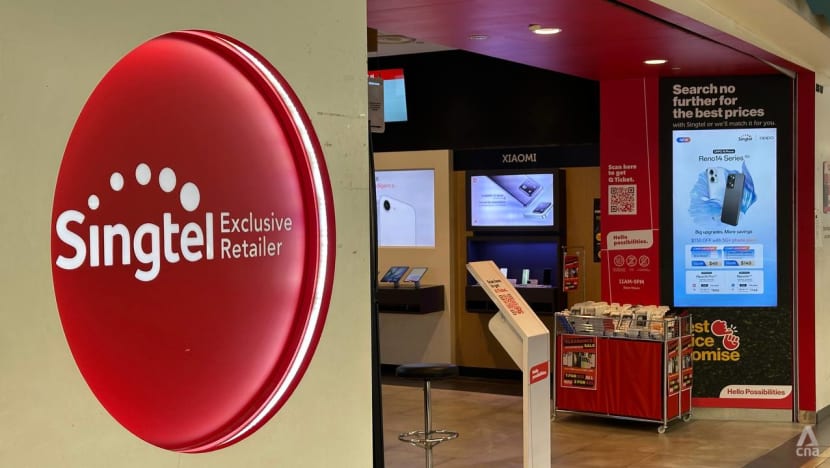Top Stories
Singtel Navigates Telecom Consolidation with Strong Brand Loyalty

SINGAPORE: As the telecom landscape in Singapore undergoes significant changes, Singtel, the country’s oldest and largest telecommunications company, is charting its own course without engaging in acquisitions or mergers. This comes in the wake of Keppel‘s announcement to sell M1‘s operations to Simba Telecom and StarHub‘s acquisition of MyRepublic‘s broadband business. Analysts suggest that Singtel’s diverse business model and strong customer loyalty allow it to maintain its position during this period of consolidation.
According to technology industry observer Oo Gin Lee, only about 27 percent of Singtel’s revenue is derived from Singapore, with the remainder coming from investments in markets such as Australia, India, Indonesia, the Philippines, and Thailand. This diversification grants Singtel the flexibility to avoid immediate consolidation moves, focusing instead on enhancing its enterprise solutions and data centre services.
Strategic Focus on Infrastructure and Innovation
Ng Tian Chong, CEO of Singtel Singapore, emphasized the company’s ongoing investment in infrastructure and services that cater to both consumers and the broader economy. He stated, “As needs and industries evolve, we’ll continue to adapt, innovate and deliver experiences that matter to both our consumers and enterprises.” This forward-thinking approach has been a cornerstone of Singtel’s brand loyalty over the years.
Industry experts note that Singtel’s early dominance in the market has created considerable barriers to entry for competitors. Shirley Tee, deputy director for industry and innovation at Nanyang Polytechnic, remarked that the company’s first-mover advantage has established robust relationships with consumers and enterprises alike. According to branding consultant Pulse Tan, Singtel earned early trust through affordable and reliable services, solidifying its reputation among older generations.
While Singtel’s services may not always be the cheapest, the company has cultivated “emotional loyalty” by providing a sense of security and reliability. Lee Haoming, CEO of Louken Group, cautioned, however, that loyalty must be coupled with adaptability to remain relevant in a rapidly changing market.
Engaging a Younger Audience
To attract younger customers, Singtel has actively modernized its image. Tan noted that millennials and Gen Z consumers prioritize value and digital experience over brand legacy. Data from market research firm eMarketer indicates that 81 percent of this demographic switched telecom providers within the past year. Singtel has responded by introducing services like entertainment and gaming collaborations, aiming to balance traditional reliability with modern relevance.
The company’s youth-oriented brand, GOMO, has also drawn interest from budget-conscious users without undermining Singtel’s premium positioning. Analysts compare this strategy to airline class segmentation, aiming to maintain Singtel’s status as a premium brand while appealing to more price-sensitive consumers.
Despite rising competition, Singtel has built a “sticky ecosystem” through bundled services that make switching providers less attractive. Kwon pointed out that factors such as household bundles and device-instalment contracts contribute to customer inertia. While Singtel’s share of the postpaid mobile subscriber market has decreased from 47.6 percent in 2011 to 38.9 percent today, the company remains competitive by emphasizing value in areas such as network quality and customer service.
Customer feedback reflects this sentiment. Retiree Ang Kah Ho expressed satisfaction with Singtel’s reliable network and customer service, stating, “They never give me any headache.” Meanwhile, software developer Ke Liyi noted her loyalty to Singtel despite considering other options, citing reliability as a critical factor. However, some customers, like Victoria Lim, have switched to competitors for better pricing and perks.
Expanding Beyond Consumer Services
Singtel’s influence extends beyond consumer telecommunications into the enterprise sector, where reliability is crucial. Lau Kong Cheen, an associate professor at the Singapore University of Social Sciences, noted that many businesses prefer to partner with established and trusted providers. Singtel’s annual report for the 2025 financial year revealed stable local mobile revenue but a decline in average revenue per user. In response, the company launched the Singtel28 growth plan, which includes investments in artificial intelligence, 5G, and digital infrastructure.
As Singtel continues to evolve beyond traditional telecommunications, Tan emphasized that its brand value now encompasses data centres and enterprise IT services, marking a significant shift in how the company is perceived. With a focus on regional investments, Singtel is positioning itself as a key player in the broader tech infrastructure landscape, further solidifying its leadership in the competitive telecom market.
-

 World5 months ago
World5 months agoSouth Korea’s Foreign Minister Cho Hyun to Visit China This Week
-

 Business5 months ago
Business5 months agoStarling Bank Plans Secondary Share Sale, Targeting $5.4 Billion Valuation
-

 Top Stories5 months ago
Top Stories5 months agoMunsang College Celebrates 100 Years with Grand Ceremony
-

 World5 months ago
World5 months agoPAS Aims to Expand Parliamentary Influence in Upcoming Election
-

 Business7 months ago
Business7 months agoKenvue Dismisses CEO Thibaut Mongon as Strategic Review Advances
-

 Lifestyle6 months ago
Lifestyle6 months agoHumanism Camp Engages 250 Youths in Summer Fest 2025
-

 Sports6 months ago
Sports6 months agoDe Minaur Triumphs at Washington Open After Thrilling Comeback
-

 Sports7 months ago
Sports7 months agoTupou and Daugunu Join First Nations Squad for Lions Clash
-

 Top Stories7 months ago
Top Stories7 months agoColombian Senator Miguel Uribe Shows Signs of Recovery After Attack
-

 World7 months ago
World7 months agoASEAN Gears Up for Historic Joint Meeting of Foreign and Economic Ministers
-

 Health6 months ago
Health6 months agoNew Study Challenges Assumptions About Aging and Inflammation
-

 Business7 months ago
Business7 months agoOil Prices Surge Following New EU Sanctions on Russia









